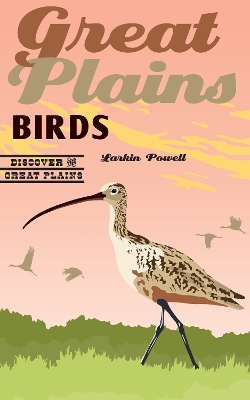Discover the Great Plains
1 total work
2020 Nebraska Book Award
The Great Plains is a well-known and well-studied hybrid zone for many animals, most notably birds.
In Great Plains Birds Larkin Powell explores the history, geography, and geology of the plains and the birds that inhabit it. From the sandhill crane to ducks and small shorebirds, he explains migration patterns and shows how human settlements have affected the movements of birds. Powell uses historical maps and images to show how wetlands have disappeared, how grasslands have been uprooted, how rivers have been modified by dams, and how the distribution of forests has changed, all the while illustrating why grassland birds are the most threatened group of birds in North America. Powell also discusses conservation attempts and how sporting organizations have raised money to create wetland and grassland habitats for both game and nongame species.
Great Plains Birds tells the story of the birds of the plains, discussing where those birds can be found and the impact humans have had on them.
The Great Plains is a well-known and well-studied hybrid zone for many animals, most notably birds.
In Great Plains Birds Larkin Powell explores the history, geography, and geology of the plains and the birds that inhabit it. From the sandhill crane to ducks and small shorebirds, he explains migration patterns and shows how human settlements have affected the movements of birds. Powell uses historical maps and images to show how wetlands have disappeared, how grasslands have been uprooted, how rivers have been modified by dams, and how the distribution of forests has changed, all the while illustrating why grassland birds are the most threatened group of birds in North America. Powell also discusses conservation attempts and how sporting organizations have raised money to create wetland and grassland habitats for both game and nongame species.
Great Plains Birds tells the story of the birds of the plains, discussing where those birds can be found and the impact humans have had on them.
